In addition to being one of the major works of Baroque architecture in the Hyblaean area, the Cathedral of Ragusa, with its unique structure and wonderful interior wall decorations, houses many masterpieces. The
barrel vault with lunettes
in the central nave has stained glass windows where the Martyrdom of St. George is depicted.
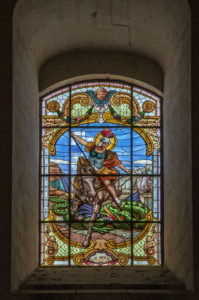
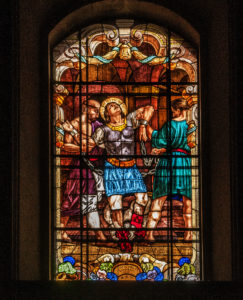
The lateral naves house the thirteen chapels decorated with precious paintings including “Riposo in Egitto” by
Dario Querci
completed in 1864, “Immacolata” and “San Nicola” by Vito D’Anna.
In the left nave we find other paintings including “Santa Gaudenzia” (1780) by Francesco Manno and the “Angelo Custode”, dated 1767, by Vito D’Anna.
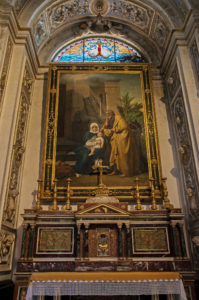
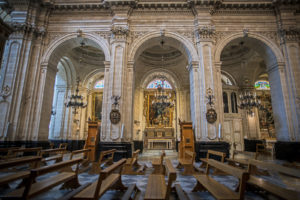
The left transept houses another work by Dario Querci from 1866 depicting St. George on horseback during the slaying of the dragon.
One of the most interesting works is an ancient
altarpiece
from 1573 brought from the old church of San Giorgio and attributed to
Giandomenico Gagini
: three statues are arranged hierarchically with St. George on horseback, in a dynamic position in the centre, St. Hippolytus and St. Mercurius on either side.
Gagini’s altarpiece is made of local limestone placed on a base with bas-reliefs depicting episodes from the life of St. George and the apostles. The entrances of the lateral naves are surmounted by two niches. In the right one there is the Holy Ark, a silver reliquary urn; in the left one there is the
simulacrum of St. George
, the patron saint of Ragusa Ibla.
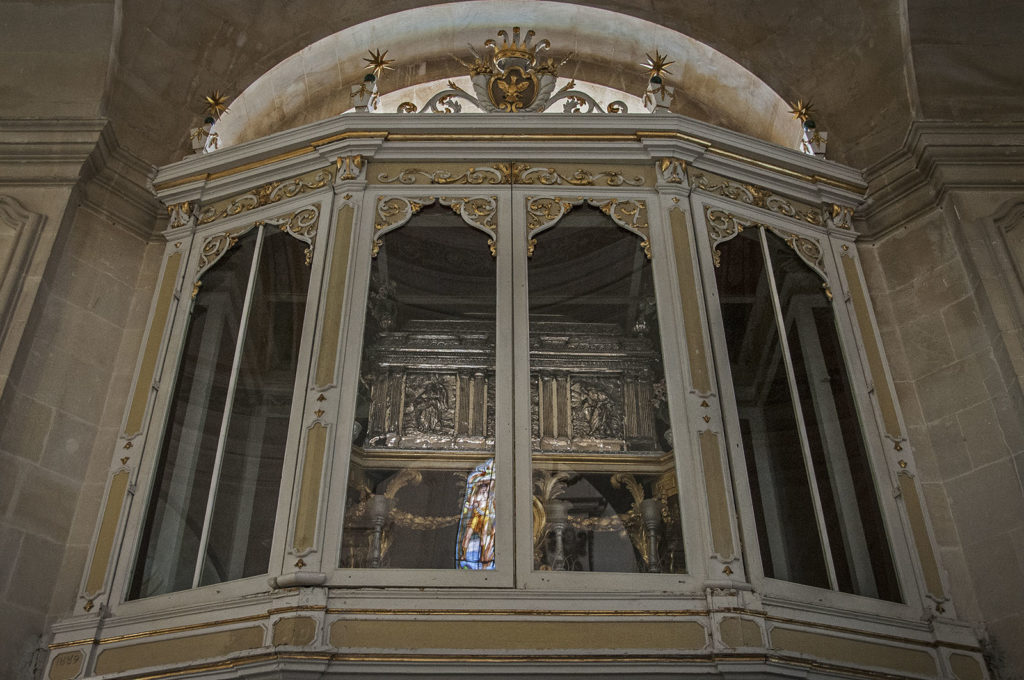
Both simulacra are displayed and carried during the procession to celebrate the patron saint.